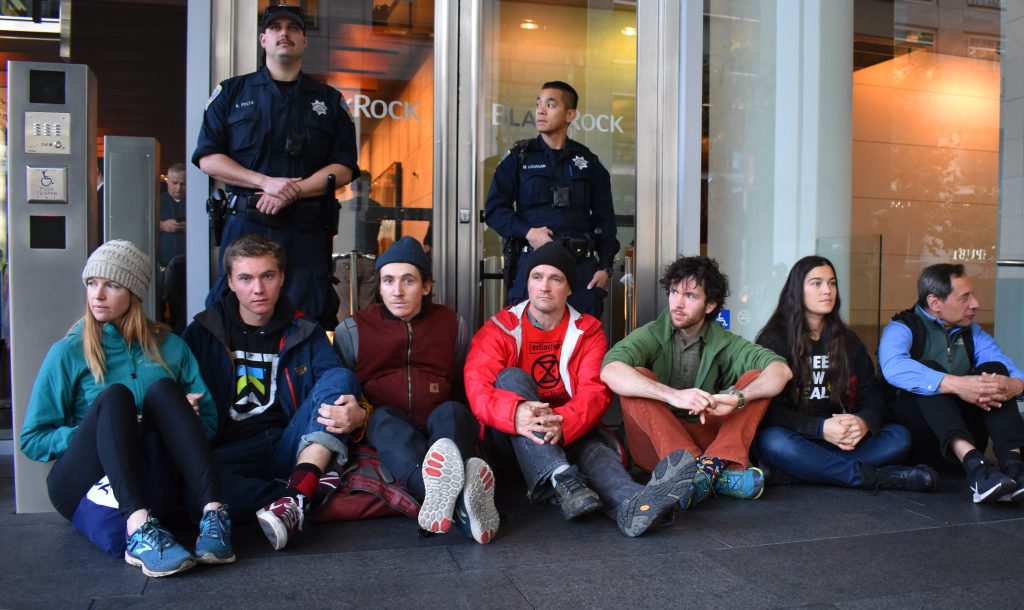On January 14, CEO of BlackRock Larry Fink announced in a letter to the company’s clients and board that they are going to focus on more sustainable investments. BlackRock is the world’s largest management investment company that currently manages a portfolio of approximately $7 trillion. On December 6, a month before Fink released his statement, hundreds of Bay Area residents and Berkeley High School (BHS) students participated in a climate change protest at BlackRock’s office in San Francisco to persuade the company to invest more sustainably.The protest was organized in part by the group Youth vs. Apocalypse. Cedar Sklar-Luers, a BHS senior who participated in the march, explained that the goal of the protest was to block the entrance to the building. Sklar-Luers said Youth vs. Apocalypse “then attempted to gain a meeting with BlackRock employees, and when refused, we formed a barricade around the door.” After protesting by the entrance to the BlackRock building, the group walked to Congresswoman Nancy Pelosi’s office.
In the letter, Fink highlighted student activism as a significant factor that lead to much of the reform within the company pertaining to sustainability and climate awareness. He said, “Young people have been at the forefront of calling on institutions — including BlackRock — to address the new challenges associated with climate change. They are asking more of companies and of governments, in both transparency and in action.”
BlackRock said they have been “deepening the integration of sustainability into technology, risk management, and product choice” across the company for years, but critics would say this statement does not appear to be aligned with the actual actions of BlackRock, given that the company has invested in companies in the fossil fuel industry like Shell and ExxonMobil, and has invested in deforestation in the Amazon, which resulted in horrific fires last year. Now the company says they are going to offer sustainable options of current portfolios, get rid of coal stocks and avoid fossil fuels, and will start to pressure companies to adhere to the Paris climate agreement.
Fink said, “We believe that sustainability should be our new standard for investing … BlackRock does not see itself as a passive observer in the low-carbon transition. We believe we have a significant responsibility — as a provider of index funds, as a fiduciary, and as a member of society — to play a constructive role in the transition.”
Student-organized protests such as this one highlight the power of student activism but also show the work to be done. Tessa Jepsen, a senior in BIHS, participated in the protest. “It’s satisfying to know that we created enough of a scandal to give them cause to worry about their public image, and right now that counts for a lot. It’s all well and good that BlackRock is cleaning up the mess they made, but I think it’s too early to tell if anything is going to change,” Jepsen said. Sklar-Luers felt similarly. He added, “I acknowledge BlackRock’s recent shift toward prioritizing sustainable investments, and whatever the reason for divestment from the coal industry, it is a step in the right direction. However, words and actions do not equate, and until BlackRock is able to prove that significant steps are being taken, I don’t believe the pressure being put on them will end.”


